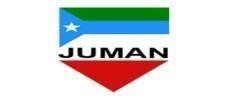- Child Protection
- Situational Overview: Children in Somalia are particularly vulnerable, constituting almost two-thirds of all people in need. They face risks of violence, abuse, forced recruitment, and exposure to mines and unexploded ordnance. In the first nine months of 2023, 298 children were maimed, and 157 killed. Boys are at high risk of abduction and forced recruitment, while girls are often subjected to rape and other grave sexual violations, particularly in isolated areas and IDP sites. Malnutrition and inadequate access to education and mental health services further exacerbate the vulnerabilities of children.
- JUMAN’s Role: JUMAN works to protect children from violence, exploitation, and abuse by providing psychosocial support, facilitating access to education, and conducting explosive ordnance risk education (EORE) to reduce the risk of mine-related injuries.
- Gender-Based Violence (GBV)
- Situational Overview: GBV remains a significant concern in Somalia, particularly in regions such as Galmudug, South West State, Jubaland, Hirashebelle, Puntland, and Somaliland. The COVID-19 pandemic has exacerbated GBV risks, with increases in intimate partner violence, rape, sexual exploitation, and harassment. Factors such as inadequate infrastructure, poor lighting, and lack of security in IDP camps and host communities contribute to these risks. Women and girls, especially those with disabilities, face challenges in accessing GBV services and are often forced into harmful coping mechanisms like early marriage and transactional sex.
- JUMAN’s Role: JUMAN provides essential GBV interventions, including support services for survivors, awareness campaigns, and efforts to improve infrastructure and safety measures in vulnerable communities.
- Explosive Hazards
- Situational Overview: The presence of mines and unexploded ordnance in Somalia poses a significant threat to civilians, particularly children. In 2023, children accounted for 80% of all casualties related to explosive remnants of war. Floods and other natural disasters often exacerbate the risk by exposing these hazards in previously safe areas.
- JUMAN’s Role: JUMAN is a leader in humanitarian mine action (HMA), conducting activities such as explosive ordnance clearance, risk education, and non-technical surveys to identify and mitigate the dangers posed by explosive hazards. JUMAN collaborates with partners like the Mines Advisory Group (MAG), Danish Demining Group (DDG), and Norwegian People’s Aid (NPA) to implement these activities effectively.
- Nutrition
- Area Focus: The nutrition situation in Somalia has improved, with the national average Global Acute Malnutrition (GAM) rate dropping from 15.9% to 12.4%. However, flood-prone areas remain at risk, especially if floods cause disease outbreaks and hinder humanitarian services. Vulnerable groups include children under five and pregnant and breastfeeding women.
- JUMAN’s Role: JUMAN focuses on improving access to quality diets through food/cash-based approaches and social behavior change communication.
- Health
- Area Focus: Health services accessibility is expected to decline due to reduced donor funding in 2024. Less than 20% of functional health facilities in selected regions are covered by development funding. Health infrastructure is further strained by frequent disease outbreaks, protracted conflict, and extreme weather conditions.
- JUMAN’s Role: JUMAN supports health facilities through short-term humanitarian funding and collaborates with Health Cluster partners to address multiple disease outbreaks, enhance maternal and neonatal care, and ensure continuity of health services during extreme weather events.
- Food Security
- Area Focus: Acute food insecurity is projected to persist due to prolonged droughts, El Niño flooding, and other factors. Vulnerable groups include newly displaced persons and agro-pastoral communities. Displaced persons face poor conditions with limited livelihood assets and reliance on humanitarian assistance.
- JUMAN’s Role: JUMAN provides limited emergency food assistance, supports livelihood recovery for agro-pastoral communities, and ensures displaced persons have access to basic necessities and social support systems.
- Environment and Climate
- Area Focus: Somalia is highly vulnerable to climate change, with significant variations in climate and increasing temperatures. Frequent climate-related disasters like droughts, floods, and locust infestations threaten food security and lead to displacement and resource conflicts.
- JUMAN’s Role: JUMAN works on climate adaptation and mitigation strategies, supports sustainable agriculture and livestock practices, promotes water conservation, and engages in reforestation and ecosystem restoration projects to enhance resilience against climate impacts.
- Fisheries and Blue Economy
- Area Focus: Somalia’s fisheries sector is underdeveloped but holds significant potential for economic growth and food security. The blue economy includes the sustainable use of ocean resources for economic growth, improved livelihoods, and jobs while preserving the health of ocean ecosystems.
- JUMAN’s Role: JUMAN supports the development of sustainable fisheries management practices, promotes the blue economy by investing in fisheries infrastructure, supports training and capacity building for local fishers, and advocates for policies that protect marine ecosystems and biodiversity.
